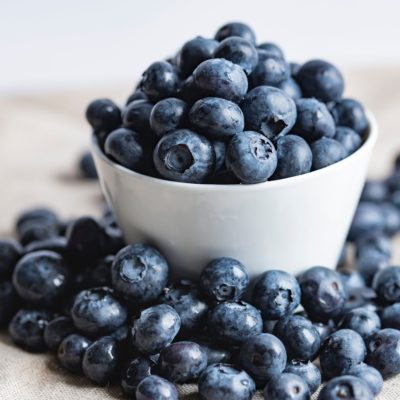carol_cheatham@unc.edu
704-250-5010
Lab Website
Carol L. Cheatham, PhD
Associate Professor, Psychology & Neuroscience
An important member of the UNC Nutrition Research Institute’s research team, Carol L. Cheatham, PhD, focuses on how nutrition can improve children’s brain function. Specifically, her team studies the importance of nutrients for the development of memory and attention abilities.
Broadly defined, Dr. Cheatham’s research focuses on the relationship between an individual’s genome and the metabolism of nutrients, and how this leads to differences in cognitive and social development. Specifically, she is interested in the development of memory and attention as they are the basis for learning, and therefore school readiness. For example, her research asks if the supplementation of children’s diets with omega-3 fatty acids have an effect on their memory abilities over a determined period of time. Many different methods and tools are used in the Cheatham lab to assess abilities, including taking turns with the children building unique toys and the use of special equipment to read their brain activity while they are watching pictures on a computer screen.
“Dr. Cheatham is an expert on the importance of omega-3 fatty acids (fish oils) for normal brain development,” said NRI Founding Director Steven Zeisel, MD, PhD, “This is an exciting and promising area of research that is changing the way women eat during pregnancy and lactation.”
Show MoreAn important member of the UNC Nutrition Research Institute’s research team, Carol L. Cheatham, PhD, focuses on how nutrition can improve children’s brain function. Specifically, her team studies the importance of nutrients for the development of memory and attention abilities.
Broadly defined, Dr. Cheatham’s research focuses on the relationship between an individual’s genome and the metabolism of nutrients, and how this leads to differences in cognitive and social development. Specifically, she is interested in the development of memory and attention as they are the basis for learning, and therefore school readiness.
Show MoreCheatham’s Team
In the News
Celebrating Neuroscience during Brain Awareness Week
April 1, 2017 • When people hear the word “nutrition,” they often think of eating healthy fruits and vegetables, counting calories, and constant exercise. At the Nutrition Research Institute (NRI) and across the North Carolina Research Campus (NCRC) in Kannapolis, NC, these are frequent topics of scientific inquiry. But to scientists, “nutrition” is a word with […]
Importance of Ratio in Essential Fatty Acids
March 1, 2017 • While omega-3 fatty acid deficiencies have been clearly linked to memory and learning problems in rodent models, studies involving dietary supplementation have produced mixed results. A contributing factor could be that the ratio of omega-3 and omega-6 fatty acids in the diet is a more important marker than omega-3 fatty acid intake alone. This hypothesis is based on the fact that these fatty acids share metabolic pathways, and on the assumption that […]
Cheatham Lab’s B.E.R.R.Y. Study Preliminary Results
August 26, 2016 • As we age, we experience gradual cognitive decline as our brains process things slower and our ability to remember things decreases. Blueberries contain anthocyanins, which have been shown to effect the areas of the brain that are related to memory and processing in animal studies. The effect of blueberries on brain function in humans is only now beginning to be tested.
Doctoral student wins award for papers in Nutrition Research journal
March 7, 2016 • Daniel Lupu, MD, doctoral student in nutrition, has received the 2015 David Kritchevsky Graduate Student Award from the journal Nutrition Research for two articles published in the November 2015 issue of the journal.
Publications
2025
Cusick, SE, Mupere, E, Bangirana, P, Baluku, RI, Kroupina, M, Cheatham, CL, Wozniak, JR and Georgieff, MK. “Supplemental choline to prevent and treat learning and memory deficits of early-life iron deficiency (The SupCHO Study): study protocol for a randomized, placebo-controlled trial in Ugandan infants with iron deficiency anemia.” Trials. 2025 Nov 19; 26:524. DOI:10.1186/s13063-025-09246-2; PMCID:PMC12628853.
2023
Cheatham, C.L., Lukowski, A.F., Bauer, P.J. (2023). Infant memory. In John H. Byrne (Ed.), Learning and Memory: A Comprehensive Reference (Second Edition), Academic Press, 2017, Pages 383–402, ISBN 9780128052914, https://doi.org/10.1016/B978-0-12-809324-5.21052-3.
2022
*Camerota, M., *Wylie, A.C., *Goldblum, J., *Wideman, L., Cheatham, C.L., Propper, C.B. (2022) Testing a cascade model linking prenatal inflammation to child executive function. Behav Brain Res. 431:113959. doi: 10.1016/j.bbr.2022.113959. Epub 2022 Jun 8. PMID: 35690156.
Cheatham, C.L., *Canipe, L.G. III, Millsap, G., Stegall, J.M., Chai, S.C., *Sheppard, K.W., Lila, M.A. (2022). Six-month intervention with wild blueberries improved speed of processing in mild cognitive decline: a double-blind, placebo-controlled, randomized clinical trial. Nutr Neurosci.6:1-15. doi: 10.1080/1028415X.2022.2117475. Epub ahead of print. PMID: 36066009.
Cheatham, C.L., Nieman, D.C., Neilson, A.P., Lila, M.A. (2022). Enhancing the cognitive effects of flavonoids with physical activity: Is there a case for the microbiome? Frontiers in Neuroscience, 16, https://doi.org/10.3389/fnins.2022.833202
(*Student)
2021
*Canipe III, L. G., *Sioda, M., & Cheatham, C.L. (2021). Diversity of the gut-microbiome related to cognitive behavioral outcomes in healthy older adults. Archives of Gerontology & Geriatrics, 96,104464 https://doi.org/10.1016/j.archger.2021.104464
(*Student)
2020
Cheatham, C.L. (2020). Nutrigenetics, Fatty Acids, & Cognition, In Caterina, Martinez, & Kohlmeier (Eds.). Principles of Nutrigenetics and Nutrigenomics: Fundamentals of Individualized Nutrition (pp. 347-354), London, UK: Academic Press.
Cheatham, C.L. (2020). Nutritional factors in fetal and infant brain development. Annals of Nutrition and Metabolism, 75, 20-32. doi: 10.1159/000508052






